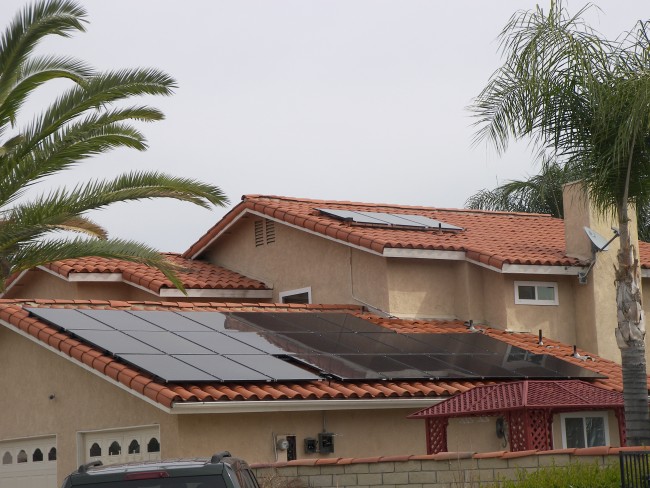
Today, many homeowners are just as concerned with how their home performs as they are with how it looks. Though there are certainly plenty of popular improvements and renovations that focus on home energy efficiency, knowing which projects are going to do the most good for the least money in your situation can be difficult. Thankfully, home energy audits are able to separate the wheat from the chaff! Residential energy audits are not the only resource available for those looking to improve their home’s energy efficiency, but they are one of the best.
The Rise of Residential Energy Audits
In the past, energy audits were more focused on commercial and industrial properties to spot the places where energy efficiency could be improved, and monthly utility bills could be reduced. Today, however, the average homeowner is becoming near as concerned about energy consumption and efficiency as any business! Residential energy audits are called for all around the country by homeowners who are concerned for the environment, concerned about monthly bills, and aware that efficient properties are likely to sell better.
Home Energy Audits Save You Money
Of course, there are plenty of skeptics out there. For those with already tight budgets, hiring a professional who isn’t a necessity is a pretty hard sell. However, when you look at the big picture, home energy audits are not only good for the environment, but good for your finances, too. In fact, home energy audits result in an average reduction of 30% off your pre-audit energy bills, making this one homeowner expense that will pay for itself in no-time.
How Residential Energy Audits Work
Once you make the decision to have a home energy audit, a professional will come to examine your property. He or she will check your energy bills, survey your energy usage, investigate your home, and perform a number of specialized tests. With data in hand, your energy auditor will come up with a detailed plan of how you can improve the energy efficiency of your home. Though this plan can vary widely from property to property, upgrading appliances (as well as home components like water heaters), increasing insulation, adding a programmable thermostat, installing weather stripping, and many other tasks often make the list.
Standardized Testing for Residential Energy Audits
Any home energy audit worth its salt should include both a blower door test and a thermographic scan.
When conducting a blower door test, your auditor will install a large fan into the frame of an exterior door. When the fan is turned on it will blow air from inside to outside, creating lower air pressure in your home and drawing in outside air through poorly sealed windows and doors. It allows your auditor to identify where your home has costly leaks around doors, windows, and other areas.
In a thermographic scan, your auditor will set up a camera or other scanning device that takes pictures of the exterior and interior of your home on an infrared spectrum. By doing so, your auditor will be able to identify areas where your home is losing heat or letting in cold. This can help your auditor to pinpoint areas that might need more insulation, as well as places where your home has sprung a leak.
The Cost of Home Energy Audits
Thorough residential energy audits are likely to run several hundred dollars, but since home energy audits are useless if you don’t take the advice, getting the most from yours is likely to cost a deal more. Of course, some newer homes will not need any large or costly repairs or improvements to be energy efficient; however, a house that’s several decades old will likely require some serious upgrades.
The real beauty of residential energy audits is that they provide you a list that you can work on at your own pace. If your audit identifies 10 or 15 problem areas, you might be able to fix 2 or 3 yourself for very little, have a professional take care of 3 or 4 of the most affordable suggestions immediately, and tackle the rest when you have the funds to do so. Since the smaller improvement you can do right now will start saving you money as soon as they are performed, you can set aside a little extra each month to save up for the larger projects. Once performed, those larger projects will save you even more money!
Are Home Energy Audits Right for You?
Nearly every property can be made more efficient. However, if your home was built within the last 10 or 15 years and was designed with energy efficiency in mind, a residential energy audit is not as likely to produce as significant results as it would on a home that hasn’t been remodeled since the 60s. While there’s really no ultimate method of determining if a home energy audit is going to pay off big, if you feel like you’re paying too much on utilities or your home is old enough to be wasting unnecessary energy, you’re probably right!
 5 Money-Saving Maintenance Projects That Should Top Every New Homeowner’s Checklist
5 Money-Saving Maintenance Projects That Should Top Every New Homeowner’s Checklist  Solar Panels Soak Up the Savings
Solar Panels Soak Up the Savings  Reduce Waste and Save Money at Home
Reduce Waste and Save Money at Home  Conservation of Electricity at Home
Conservation of Electricity at Home  7 Easy Ways to Save Water in the Summer
7 Easy Ways to Save Water in the Summer 

Are You Familiar With This Topic? Share Your Experience.